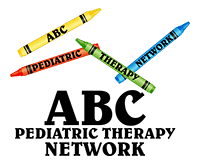The Right Feeding Therapy

Occupational Feeding Therapy performed by an Occupational Therapist
Signs of possible OT feeding intervention: Limited diet, picky eater, texture and temperature difficulties
Feeding with an OT lens can also be for mealtime behaviors, such as overstuffing or inattention to being able to demonstrate age-appropriate behaviors at mealtime. It can also mean concerns for self-feeding, motor planning for utensil use, and bringing food to mouth. We can also work on transitioning bottle feeding to purees or more solid foods in a correct progression of foods/textures.
For kids past toddler age, I would watch out for problem feeders vs. picky eaters: omission of an entire food group, less than 20 tolerated foods, and "texture" type aversions. Typically, when kids are "picky" eaters and older in age, it is more about giving strategies and breaking through the control factor than an actual "feeding" or sensory issues. A lot of times anxiety and mental health can manifest into what appears to be a sensory or feeding concern.
OT feeding can also look at suck, swallow, breath sequence and oral motor skills/endurance needed for chewing and swallowing, but there is a big overlap with speech in this area
Speech Feeding Therapy performed by a Speech Therapist
For speech, we will with work with children with oral-motor based feeding concerns and/or swallowing deficits.
Signs and Symptoms of oral motor feeding concerns: Difficulty with safe intake of solids (too much at one time, not biting and chewing down the solids, overstuffing and too much too quickly, not safe could result in choking due to poor management of the solids inside the mouth to initiate safe swallow)
Signs of Symptoms of possible swallowing concerns: coughing on liquids, wet vocal quality after meals, decrease responsiveness during feeding, crying during feeding, difficulty with secretion management
Check out the video below!
Developmental Checklist
Is your child meeting their developmental milestones?
 Skip to content
Skip to content